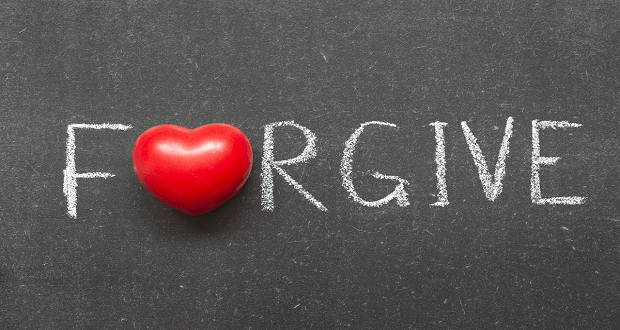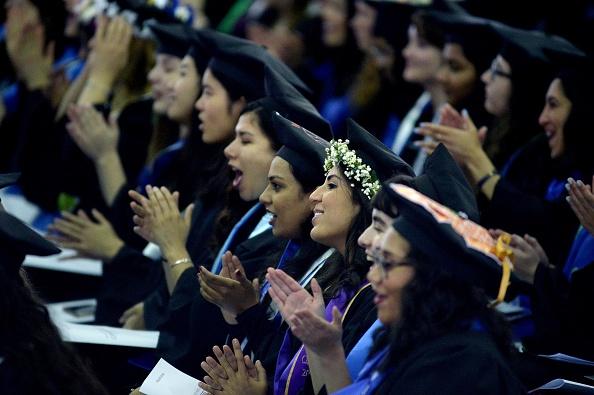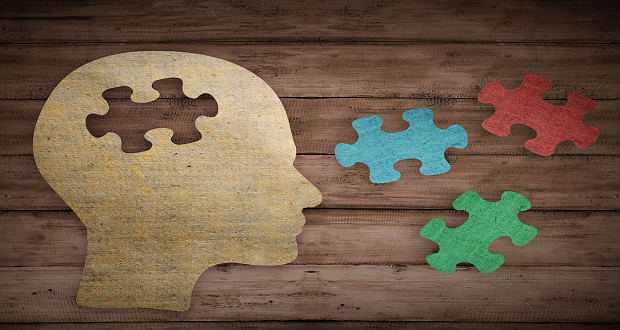
The recent public controversy over Kevin Hart’s despicable homophobic jokes from 2012 and whether that transgression should ban him from hosting the Oscars, reignited my interest in the concept of forgiveness as it relates to our work in diversity, equity and inclusion.
Since the publication of “We Can’t Talk About that at Work: How to Talk About Race, Religion, Politics and Other Polarizing Topics,” I have been all over the world helping individuals and organizations talk about these subjects. I have learned a great deal from these interactions. I have learned that there is a lot more fear than I envisioned, a lot more fragility than I thought possible, and too little forgiveness when we don’t get it right.
To effectively engage in Bold, Inclusive Conversations®, we have to acknowledge and address fear and fragility, and learn how to forgive. Forgiveness does not mean that we forget the transgression; we don’t want to forget because forgetting raises the possibility of repeating the wrongs and does not give us the opportunity to keep learning from them. Instead, forgiveness means that all parties learn from the situation, let the emotional pain go, and move on—more enlightened and capable of meaningful dialogue. I contend that forgiveness is more for the well-being of the offended than the offenders. Forgiveness is clearly easier said than done, especially when the offense tears at the very core of an individual’s or a group’s identity. Yet, harboring feelings of anger and hostility towards those who have caused pain is not good for our physical or mental health.
The Winters Group 4E model™ theorizes that in order to engage in effective cross-cultural dialogue, exposure, experience, and education are needed to foster understanding around different cultural worldviews. These three Es enable the 4th, which is empathy. We believe that if you have had little exposure to, experience with, or education about groups of which you are not a part, you are more likely to do or say something offensive—perhaps innocently, out of ignorance. This lack of knowledge undermines one’s capability to empathize. How can you walk in someone else’s shoes if you know nothing about their path?
We see almost daily examples of high-profile people, like Kevin Hart, being called out in the media for insensitive comments or actions. Many were outraged when Meghan Kelly was dismissive about displaying blackface this last Halloween; Rosanne Barr lost her starring role in her TV sitcom for racist remarks against top Obama advisor Valerie Jarrett. Just last week, a Rochester, NY meteorologist was fired for saying Martin Luther “Coon” instead of Martin Luther King. He immediately corrected his faux pas on air. The Rev. Bernice King, daughter of the famed Civil Rights leader does not think he should have been fired. She called for some repercussions, including an apology, but thinks firing went too far. Earlier this week, Iowa Republican Congressman Steven King was admonished by both parties for his remarks in a New York Times interview where he said, “White nationalist, white supremacist, Western civilization — how did that language become offensive?” As punishment, he has been stripped of all of his committee assignments, and other sanctions may be forthcoming. He says his comments were mischaracterized, but he has a long history of making insensitive comments about Muslims and immigrants, and other non-white groups. At the 2016 Republican National Convention, he said that non-white groups have not contributed as much to civilization as whites.
Some offenders seem genuinely contrite and their apologies sincere—”I just did not know” or “I did not mean it,” in the case of the meteorologist. Others, like Meghan Kelly appear to be dismissive and downplay the impact of their actions as “no big deal.” How can we really know who is sincere with their apologies? Does everyone deserve forgiveness? What about someone like Steven King, who appears to hold deep seated and long-standing anti-diversity and inclusion views? Even if we forgive, should there always be irrevocable consequences for the actions (e.g. Kevin Hart should never be able to host the Oscars)? What is the “right” punishment (should losing one’s job or source of income always be the solution)? The ultimate question is this: Is forgiveness necessary for us to make progress in our diversity, equity and inclusion work?
While I don’t have definitive answers for most of the questions above (other than “it depends,”) I know now, more than ever before, that forgiveness is essential for authentic dialogue which will lead to greater cross-cultural understanding, and ultimately, a more inclusive world. Forgiveness is paramount at the individual, organizational, and systems levels.
Forgiveness is essential for authentic dialogue which will lead to greater cross-cultural understanding, & ultimately, a more inclusive world. Forgiveness is paramount at the individual, organizational, & systems levels. Click To TweetThose from marginalized identity groups may not be apt to forgive because they believe the offender should have known better. (“Who doesn’t know that blackface is offensive?”) Or, they may believe that the offender did know better and the transgression was intentional. If there is an apology, they may not think that it was sincere enough (another difficult question: who gets to be the judge of that?)
I myself am guilty of not forgiving Denny’s Restaurants for reports of widespread mistreatment of black customers in the 1990s. I did not eat there for many years after (nor did many of my family and friends), even though Denny’s responded with a number of actions to right these wrongs. I daresay Denny’s was not hurt by my actions. I was the one who was experiencing emotional turmoil every time I heard a Denny’s commercial or passed one of their restaurants.
When the system of Apartheid was ended in South Africa in 1994, Nelson Mandela immediately forgave his jailers and those who supported the oppressive regime that segregated and discriminated against blacks. He gave one of his jailers a front row seat at his presidential inauguration and graciously worked with Apartheid leaders through reconciliation. He said: “When a deep injury is done to us, we never heal until we forgive.”
Psychologists have linked forgiveness and empathy. Research shows that taking a broader view on an offenders’ motivation—rather than focusing on the gravity of their act only—considering the factors that might have led to their behavior (e.g. “I just did not know”), as well as being able to see them in a similar way to ourselves, can all promote empathy, making it possible to forgive.
As you read this piece, I am sure many of you are thinking, “Yea, but who is doing the forgiving—those of us who have been historically marginalized and oppressed, right? Why are we the ones who are always asked to make the concessions, to do the teaching. If the ‘dominant groups’ would do their part and learn more about the world from our side, there would be less need to forgive.” I invite you to think about forgiveness as a precious gift to give freely. For those who are of faith, many religions teach forgiveness as a core tenant for believers. As Michele Obama said, “When they go low, we go high.” We take the higher ground because we want progress in DEI, and we want it more than those who don’t see a need for change.
We take the higher ground because we want progress in DEI, and we want it more than those who don’t see a need for change. Click To TweetI also think there is a need for dominant groups to forgive historically marginalized groups. Forgive us for assuming that well-intentioned people should know the things that they do not about us; it has simply not been their experience. Forgive us for assuming mal-intent where there was none. Forgive us for blaming individuals for systemic woes (this does not mean that I am letting dominant group individuals off the hook for helping to uphold oppressive systems). Forgive us for the resentment that we may hold in having to teach dominant groups about inequities.
Until there is forgiveness all around, we will not make progress in engaging in Bold, Inclusive Conversations®. What are the steps to forgiveness? I draw on the wisdom of Deepak Chopra as a way to begin to forgive.
· Feel your emotions and face them directly.
· Write down your reasons for not forgiving.
· Ask yourself how motivated you are to forgive.
· Let go of as much resentment and anger as you can, here and now.
· Envision what the future would be like if you do forgive.
· Reconnect at a sincere, positive level.
· Find the place of forgiveness in your own awareness. Forgiveness is a state of consciousness, not an action.
In honor of Dr. Martin Luther King Jr.’s birthday, which was earlier this week (January 15th), I end with a couple of his prolific thoughts on forgiveness.
“We must develop and maintain the capacity to forgive. He who is devoid of the power to forgive is devoid of the power to love. There is some good in the worst of us and some evil in the best of us. When we discover this, we are less prone to hate our enemies.” – Martin Luther King, Jr. And…
“Forgiveness is not an occasional act, it is a constant attitude.” – Martin Luther King, Jr.


















